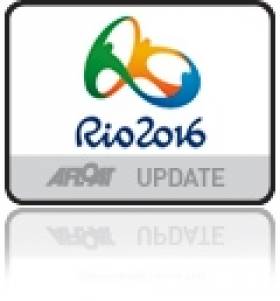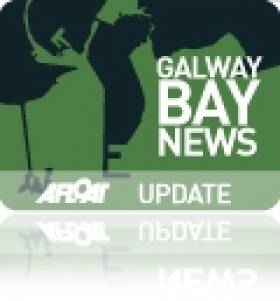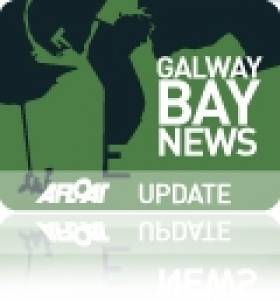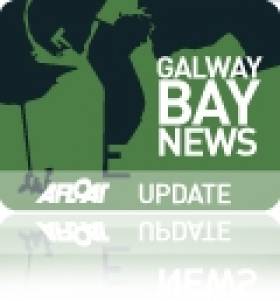Displaying items by tag: Disabled Sailing
#Paralympics - The decision to drop sailing from the 2020 Paralympic Games still stands, following a review of the organisers' controversial move by the ISAF Executive.
Sailing joined seven-a-side football on the chopping block when the International Paralympic Committee (IPC) announced its list of 22 sports for the Tokyo Paralympic Games in five years' time.
It means that next year's Paralympic Games in Rio will be the last time sailors take part for the foreseeable future.
The Irish Sailing Association (ISA) expressed its disappointment with the move "at a time when the development of Sailablity Ireland is more active than ever before."
Indeed, Ireland has been at the forefront of disabled sailing, with multiple-time Paralympian John Twomey holding the presidency of the sport's world governing body, and Kinsale hosting the IFDS Paralympic Worlds in 2013.
There were hopes that the ISAF's review of the IPC's announcement would see the decision overturned - especially following the merger of the IFDS with the ISAF late last year.
But those appear to have been quashed with the conformation that the process to select sports for Tokyo 2020 has officially ended.
The ISAF says it "will continue to work hard to reinstate sailing in the 2024 Paralympic Games and also pursue the slimmest possibility of sailing being included at Tokyo 2020."
The ISAF website has more on the story HERE.
Disabled Sailing Champs Hailed a Great Success In Galway
#disabledsailing – Galway Bay Sailing Club (GBSC), for the first time in it's history, very proudly hosted an "All Ireland" sailing event for sailors with a disability. This national event brought together the largest collection of disabled sailors ever assembled in Galway and in Ireland for a great weekend of competitive sailing.
This was the first time in Irish Sailing history that both juniors and adults with a disability competed together in races over Saturday and Sunday 19th and 20th July.
Due to its stability the Hansa 303 is ideal for disabled sailors. Sailing is one of the very few activities for people with a disability that achieves parity with able bodied peers on the water. The thrill, excitement and freedom experienced by all sailors becomes universal.
The weekend stared off with very light winds. 15 boats registered; 19 sailors with a disability competed. The first signal handed race was run over both days. The winner was Georgina Griffin from Kinsale, second Caolan McCarthy, Kinsale and third Gary Allen from GBSC.
Winners in the other categories were: Shane Barker, Dun Laoighaire; Lia Teahan O Connor, Kinsale and Isobel keane GBSC.
Integration was the real winner – all sections of Galway Bay sailing club got involved – the race experts, sailors from dingy to cruising to juniors got stuck in so that we had every eventuality covered.
Without our sponsors this event could not have been possible:
The week before our event wheelchair users found the boat yard more accessible thanks to very generous sponsorship from Cold Chon Ltd who tarred a large section of the dingy park making it more accessible and wheelchair friendly. Delicious beef burgers and smoked salmon was provided by the Castlemaine Droney Group and KPW did all the design and print. Along with this sponsorship a defining element of the weekend success was the warm welcome, vibrancy and support from the 50 + volunteers!
Our legacy?
Well for starters we all have made a bunch of new friends. We have raised the profile of sailing in general and in particular for those with disability. We have mixed junior and adult sailors and are able to offer sailing to adults now with the new hoist loaned for this occasion. (We are seeking sponsorship to retain this hoist). We've broken through some personal internal and external barriers!
Final word over to the sailors:
Kerry Mussen "Amazing, 1st thing I've found that makes me want to go out the door"
Sean had a wonderful time - to quote him "Best Weekend Ever".
On behalf of Belfast Lough Sailability I would truly like to thank you all for hosting such a great event over the weekend. Our sailors and helpers had a wonderful time and we look forward to welcoming you to Carrickfergus next year.
Anne Taylor
Chairperson
Belfast Lough Sailability
Galway Bay Club Hosts Disabled Sailing Championships
#gbsc – Galway Bay Sailing Club, for the first time in it's history, is very proudly hosting an "All Ireland" sailing event for sailors with a disability writes Lorraine Scully This national event will bring together the largest collection of disabled sailors ever assembled in Galway for a great weekend of competitive sailing. GBSC have 17 boats entered from Cork, Dublin, Belfast and Galway with 19 competitors.
The All Ireland HANSA 303 Nationals is in it's third year. 2014 in Galway will be the first time in Irish Sailing history that both juniors and adults with a disability will compete in various races over Saturday and Sunday 19th and 20th July.
Dave Vinnel, GBSC commodore, is very excited to bring these Nationals to Galway – while the club has experience of running many national sailing events this is the first time we will do so for disabled sailors. With the help of our very generous sponsors and a strong band of volunteers we are all really looking forward to welcoming sailors from all over Ireland, North and South.
Due to its stability the Hansa 303 is ideal for disabled sailors. Sailing is one of the very few activities for people with a disability that achieves parity with able bodied peers on the water. The thrill, excitement and freedom experienced by all sailors becomes universal.
For the past number of years GBSC has had growing participation from junior sailors with a disability working closely with Galway Speeders the Galway based multi-sport club for children with a physical disability whose aim is to promote sport for young people with a physical disability. GBSC now has 7 boats for use by sailors with disability and demand still out strips supply!
Just this week wheelchair users will also find the GBSC boat yard more accessible thanks to very generous sponsorship from Cold Chon Ltd who tarred a large section of the dingy park making it more accessible and wheelchair friendly.
Racing will take place from 1-4pm on Saturday and 11.30-2:30 on Sunday and all are welcome to come and visit.
Registration from 9.30 Saturday 19th for competitors
Club house open to all visitors all weekend
For more information phone Bridgette Brew 086 335 9962.
Disabled Sailing Nationals In Galway Bay For 2014
#GalwayBay - Galway Bay Sailing Club (GBSC) will host the 2014 National Disabled Sailing Championships, it has been announced.
According to the Galway Advertiser, the decision to give the event to the City of the Tribes was swayed by its successful Access sailing programme for young people with disabilities.
IFDS president John Twomey - also Afloat.ie's Sailor of the Month for August - was in the city recently to see some of those young sailors compete at the helm of Hansa 303 dinghies in GBSC's first Access Autumn Series.
The series features members of the Galway Speeders, a sports club set up for young people with disabilities that's currently seeking funding for equipment that will help its sailors get in and out of their boats more easily.
The Galway Advertiser has more on the story HERE.



























































